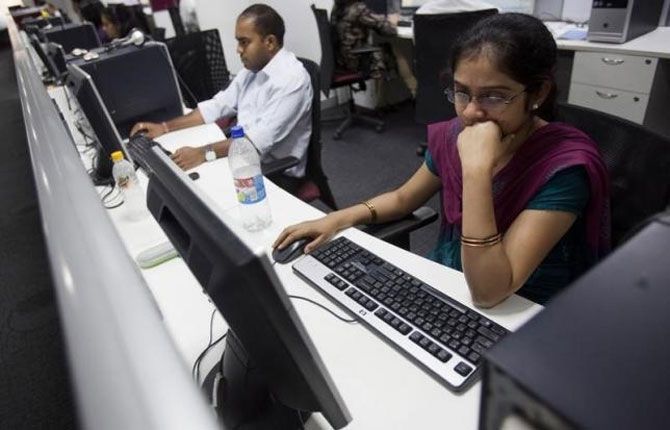Investors are already factoring in the impact. The IT Index on the BSE exchange dipped 2.5 per cent, with Infosys, Wipro and TCS showing a decline.

Major information technology services companies such as Tata Consultancy Services, Wipro, Infosys and HCL are expected to see a subdued December quarter.
It is traditionally a weaker season but also comes amidst big shifts in technology and the market. Pricing pressure on traditional services, slower renewal of projects and shifts at clients towards digital transformation that require engineers onsite and currency fluctuations are expected to impact the operating margin.
“The top-tier growth in constant currency will range between minus one per cent and 3.1 per cent on a sequential basis and 6.6 per cent to 13.1 per cent year-on-year (y-o-y),” said brokerage Motilal Oswal.
Though the rupee has depreciated against the dollar by 2.1 per cent on a sequential basis, the impact of depreciation of other currencies are expected to impact the business of these firms, says the report.
“On a y-o-y basis, margin movement for tier-I companies to vary between 130 and 150 basis points (bps),” it said.
In dollar terms, quarterly revenues of TCS, Infosys and Wipro, the top three, are expected to grow 5.25, 5.1 and 4.1 per cent, respectively, y-o-y.
For Wipro and Tech Mahindra, inorganic growth through acquisitions will help post better numbers. While Wipro’s recent purchase in the cloud services space, Appirio, is expected to add about Rs 100 crore ($15 million) in revenue, TechM should report a a little more than three per cent growth in constant currency terms, quarter-on-quarter, mainly with a one-month contribution from the Target acquisition.
Sector analysts would keenly watch the commentary and forecast by Infosys for the financial year’s fourth quarter (March), due to the shifts seen in technology trends and policy changes by US President-elect Donald Trump, who will take office later this month.
In his New-Year letter to Infosys employees, chief executive Vishal Sikka has warned that the disruption from digitisation, automation and artificial intelligence would have a bigger impact on IT services than political shifts. He has cautioned that the tidal wave of automation and technology-fuelled transformation could make traditional IT services obsolete.
“Our path forward is very clear -- we need to harness the dual forces of automation and innovation. We must embrace automation to become more productive in the work we do and with the resulting capacity, focus our attention upwards towards innovation, for ourselves and our clients. The foundation for all of this is our culture, our values and especially our infrastructure for life-long learning,” said Sikka.
It is already a tough time, with an uncertain macro economic condition, poor margins in the traditional services business and slower growth on the digital technology front. Any protectionist move in the US by the Trump administration might further hit the revenue of these companies.
Analysts would also weigh the potential impact of the ‘Protect and Grow American Jobs Act,’ a Bill re-introduced by two Republican senators earlier last week. It seeks new eligibility requirements such as increase in salary for an H1B visa holder and to eliminate the master’s degree exemption. If passed, it would have a big impact on Indian IT companies, as a majority of the employees have bachelor’s degrees in engineering or computer science.
Investors are already factoring in the impact. The IT Index on the BSE exchange dipped 2.5 per cent or 257.45 points to close at 9,880.61, with Infosys, Wipro and TCS showing a decline.
“Wipro, HCL and Tech Mahindra’s growth will be driven by the inorganic route. We expect mid-cap companies to report mixed results. Commentary from large-cap companies on client budgets for the current year, pricing pressure, and growth in digital services will be the key to watch,” said PhillipCapital, an institutional equity research entity.
It said Infosys, the second largest software exporter, was expected to see a 0.2 per cent decline on a sequential basis and a 70 bps decline in its margin.
Analysts, however, say the sector could see signs of improvement in the next financial year, once macro economic conditions get better. While deal wins seem promising, BFSI (banking, financial services, insurance) sector spending might go up with the interest rate cycle reversal in the US, says the Motilal Oswal preview.
Photograph: Vivek Prakash/Reuters.







 © 2025
© 2025